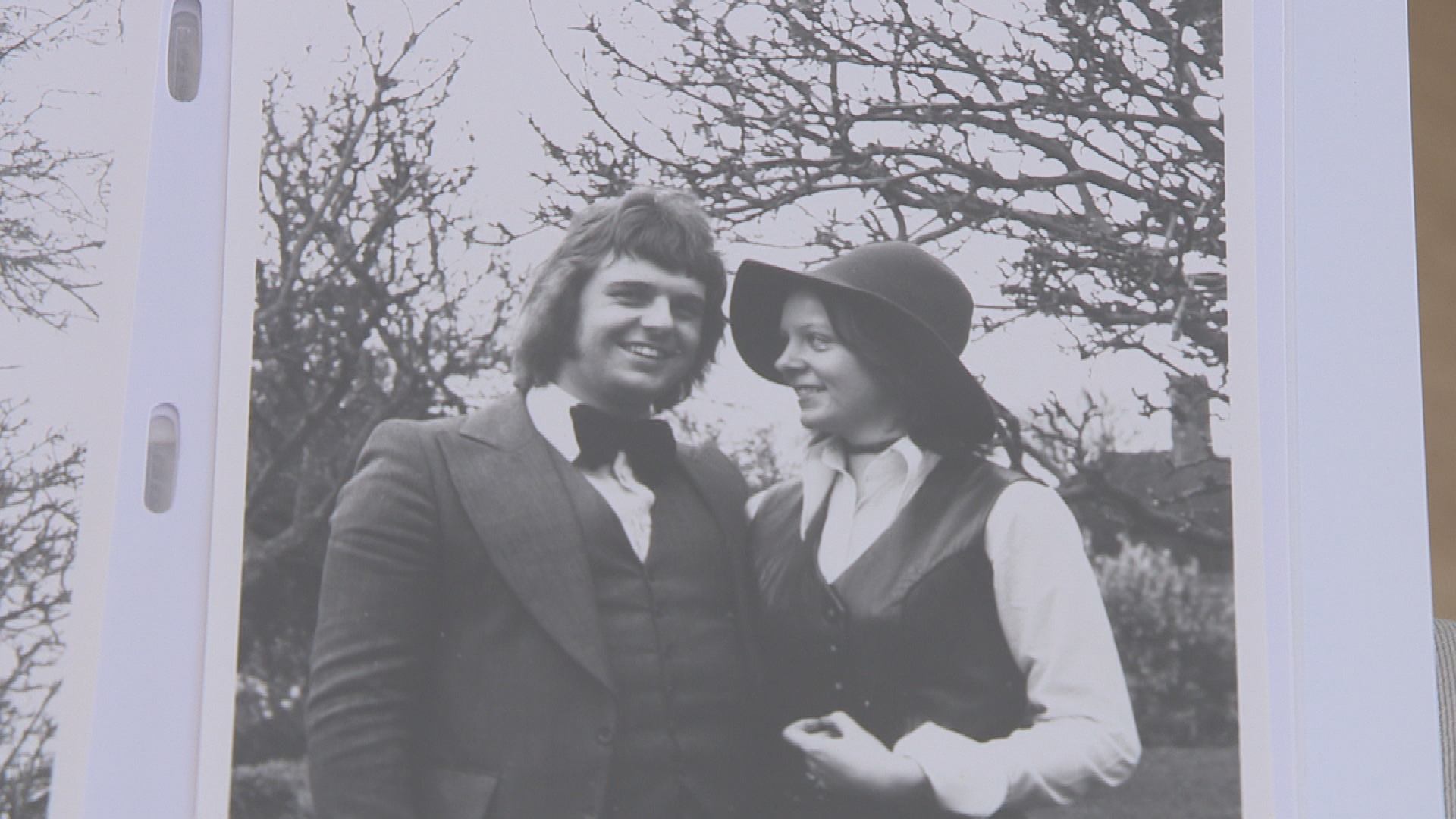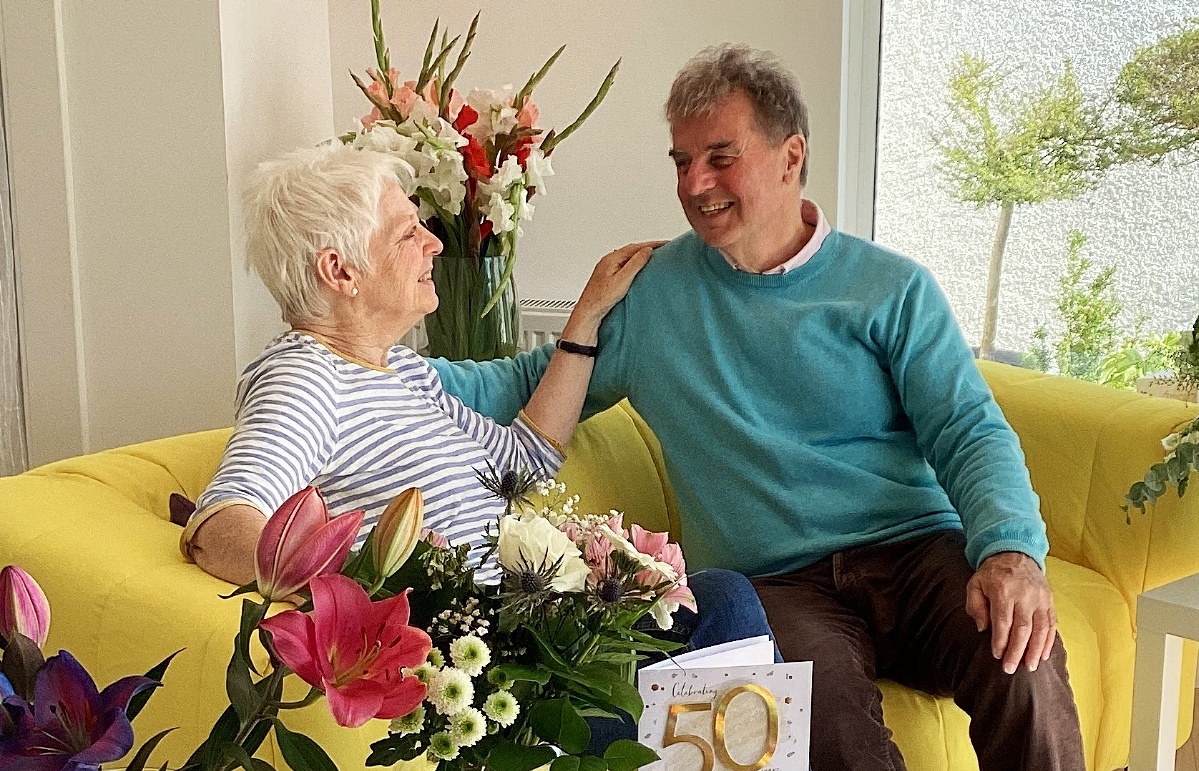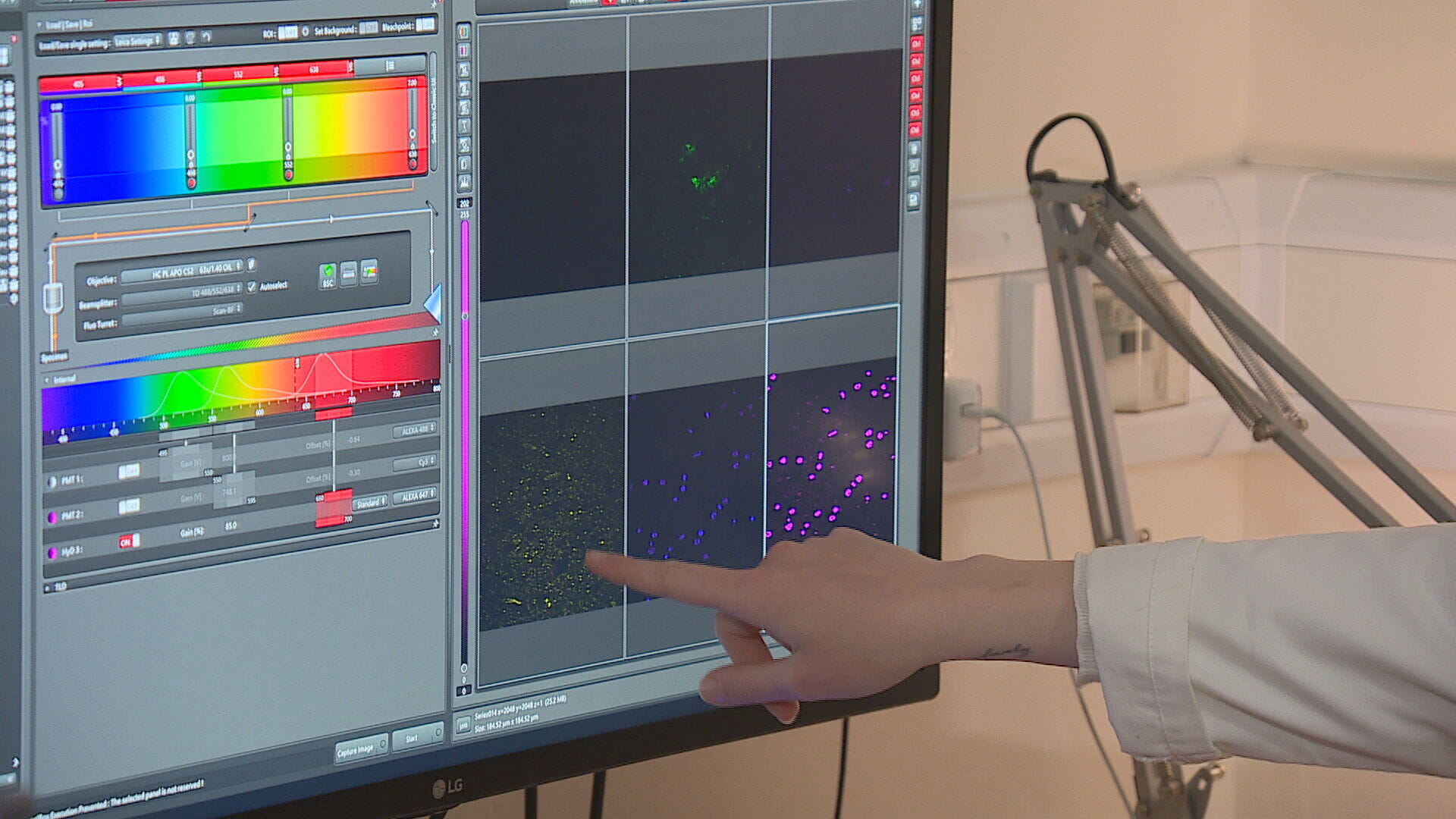At-a-glance
-
 Glenn Stewart is a full-time carer to his wife Rona, who lives with progressive supranuclear palsy
Glenn Stewart is a full-time carer to his wife Rona, who lives with progressive supranuclear palsy -
 The little-known neurological condition is often mistaken for drunkenness as it causes people to lose their balance
The little-known neurological condition is often mistaken for drunkenness as it causes people to lose their balance -
 Scientists in Edinburgh say a recent study could mark a step forward in slowing the disease’s progression
Scientists in Edinburgh say a recent study could mark a step forward in slowing the disease’s progression -
 They have examined how a crucial protein, called tau, spreads in the brain
They have examined how a crucial protein, called tau, spreads in the brain -
 Glenn and Rona say more awareness of the condition is needed in Scotland
Glenn and Rona say more awareness of the condition is needed in Scotland
An Edinburgh couple have welcomed new research into a rare and little-known neurological condition that is often mistaken for drunkenness.
Glenn Stewart is a full-time carer to his wife Rona, who lives with progressive supranuclear palsy, or PSP.
Researchers say the condition is like a mixture of motor neurone disease and Alzheimer’s, affecting around one in every 18,000 people.
It cannot be cured but scientists at the University of Edinburgh believe they may be on the cusp of a breakthrough.
‘People would stare – they just assumed she’d had a drink’
Glenn and Rona have been together for over 50 years. They were high school sweethearts who built a life in Edinburgh.
 STV News
STV NewsBut when Rona began to fall regularly, it soon became clear something was seriously wrong.
“My balance is terrible,” Rona told STV News. “I can’t get up from the chair anymore. Glenn does everything. I sit and do nothing. It’s horrendous, it’s very frustrating.”
Now Glenn is her full-time carer, helping Rona to the bathroom every half an hour. They face the same quiet battle daily – not just with the disease, but with how people perceive it.
Have your say
Have you been impacted by these events? Tell us your story.
“When she would fall in public, people just assumed she was drunk,” said Glenn. “One time she fell backwards on the steps and broke her vertebrae. I wasn’t there to catch her.
“It’s one of those situations where people don’t step in to help because they think it’s something else. We need more awareness in Scotland. Most of the research is happening down south.”
 Supplied
Supplied‘It’s like Alzheimer’s and motor neurone disease combined’
PSP is a degenerative brain condition that affects movement, balance, vision and speech. Researchers describe it as a cross between motor neurone disease and Alzheimer’s.
There is no cure but scientists at the University of Edinburgh say a recent study could mark a step forward in slowing the disease’s progression.
 STV News
STV NewsThanks to brain tissue donations, researchers are now able to examine how a crucial protein, called tau, spreads in the brain. Its buildup is known to contribute to both PSP and Alzheimer’s.
Scientists examined synapses in donated post-mortem brain tissue samples from people who died with PSP.
They found evidence of tau inside synaptic connections and its presence was linked to synapse death, suggesting the toxic protein was killing these connections.
Tara Spires-Jones, professor of neurodegeneration and director of the Centre for Discovery Brain Sciences at the University of Edinburgh, said: “We want to understand why synapses are dying and how tau moves from one part of the brain to another.
“Wherever tau goes, brain cells die. Age is the biggest risk factor and science is the only way to fight back.”
The team hope their work could eventually lead to a treatment that slows PSP’s march, giving patients more time and independence.
‘We love one another’
It’s a discovery that’s come too late for Rona, but she and Glenn are determined to make the most of every moment together.
“We’ve been together for 56 years,” said Glenn. “We love one another. That’s what keeps us going.”
Follow STV News on WhatsApp
Scan the QR code on your mobile device for all the latest news from around the country





























